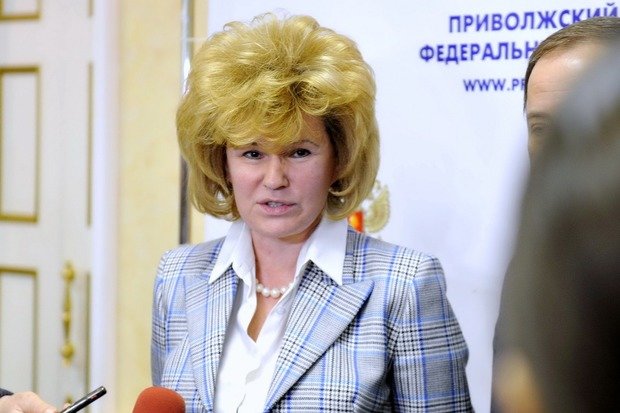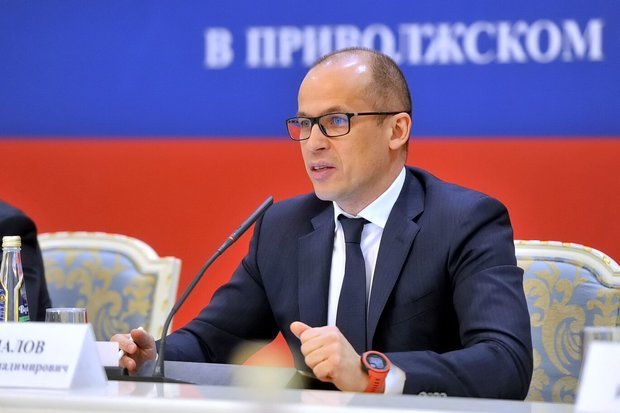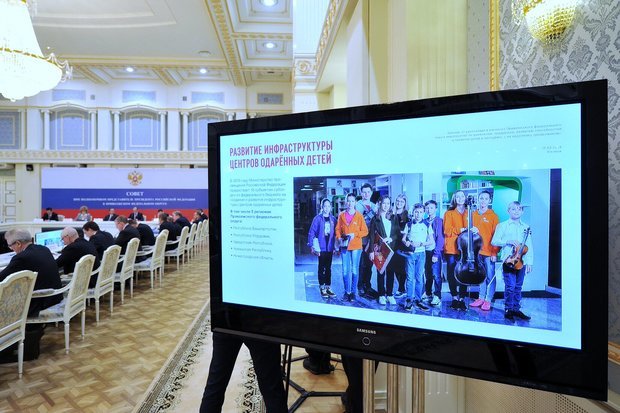Komarov: ''The better the youth training, the higher the percentage of people who went to Moscow''
Regional leaders of Volga Federal Okrug discussed the brain drain problem with the president’s plenipotentiary representative in Izhevsk
How to keep the talented youth in regions? Volga Federal Okrug has been seriously concerned about the creation of certain measures to support young specialists. At the moment, the better the staff training is on the spot, the more they go to the federal centre and other regions that can offer more interesting working conditions. The problem was discussed at a meeting of the council with the Russian president's plenipotentiary representative to Volga Federal Okrug Igor Komarov in Izhevsk on 12 March. Realnoe Vremya tells the details.
''This happens because of the necessity to make a push''
The talented youth became a subject of competition between both countries and Russian regions a long time ago. Hopes are pinned exactly on them for a qualitative breakthrough of the Russian economy. Moreover, every region has its own working experience with gifted children, bringing talents to light at an early age and their further training. The topic was discussed in Izhevsk at a meeting of the council under the Russian president's plenipotentiary representative to Volga Federal Okrug – On Measures Taken in VFO Regions to Spot, Support, Develop Skills and Talents among Children and the Youth and Their Promotion.
In his speech, Plenipotentiary Representative Igor Komarov noted the necessity to create a strategy to work with the talented youth, so that their potential could be fully shown and find an application. According to him, every VFO region has its own methods of work. Moreover, a full-fledged system from spotting talented children at an early age, help in their development, quality education to working in a field that relates to their degree is created in Tatarstan. Tatarstan President Rustam Minnikhanov and Governor of Nizhny Novgorod Oblast Gleb Nikitin shared their successful experience in this respect at the council's meeting but behind closed doors for the press.
''Actually, officials of all VFO regions without exception pay serious attention to support the talented youth,'' noted Komarov in a talk with the journalists. ''This happens because of the necessity to make a push, a breakthrough, and, of course, only the talented youth are able to provide it. I would also like to say that VFO pays a lot of attention to it. Five out of ten leading regions with the best results in all-Russian school Olympiads are VFO regions. The results are good, of course, but we should go further. Many aspects of supporting measures for the talented youth were considered by the example of Udmurtia, Tatarstan, Nizhny Novgorod. Everyone understands one should deal with this issue.''

Nowadays there has appeared a term as ''new basic literacy''. Apart from maths, literature, physics, which modern parents support, there have been such requirements as design skills, digital literacy, adaptability to changes
''Thinking outside the box will be required of graduates''
Moreover, the identification of talented children is, first of all, the education system's prerogative, which not always knows how to identify talents and make a correct impact on their development.
''Every child is talented, our task is to bring his or her talents to light, this is Russia's success,'' Deputy Minister of Education of Russia Irina Potekhina said in her speech. ''This is why when we're talking about developing talents, we don't mean just that a child should demonstrate his or her abilities explicitly, we're saying that all Russian children should get such a chance. It's especially fair today because nobody knows amid rapidly changing technologies what talents exactly will be in demand in several years.''
According to her, modern-day parents consider good education a factor of competitiveness in the labour market. However, the ''shelf life'' of qualifications, which can be obtained at university in the current conditions, is reducing, they will become obsolete in some industries much faster.
''We will see many routine professions disappearing. People want to do things that can't be automated more. And this means completely different requirements will be claimed to graduates – thinking outside the box, a creative approach, an ability to make a decision quickly. Nowadays there has appeared a term as ''new basic literacy''. Apart from the maths, literature, physics, which modern parents support, there have appeared such requirements as design skills, digital literacy, adaptability to changes,'' Potekhina noted.
Teachers who ''have to compete with the Internet for schoolchildren's attention'' should adapt to the contemporary conditions. National projects, which kicked off, are to help develop talented children and the youth.

''In 2019, the Ministry of Education of the Russian Federation will grant 16 regions subsidies from the federal budget to create and develop the infrastructure of Gifted Children's Centres within a federal project. They include five Volga Federal Orkug regions – the republics of Bashkortostan and Mordovia, Udmurtia and Chuvashia, Nizhny Novgorod Oblast,'' told head of Udmurtia Aleksandr Brechalov.
He says Udmurtia will receive 200 million rubles from the federal budget to create such a centre this year.
In addition, children's technopark Quantorium operate nowadays in 11 out of 14 VFO regions. It's planned to create the technoparks in Saratov and Orenburg Oblasts and in the Republic of Mari El during the year. In 2018, Quantorium included 253,000 children. In addition, mobile technoparks for children living in the countryside and towns are planned to be created from 2019, Brechalov told.
''The better the training of the talented youth, the higher the percentage of people who went to Moscow''
The speakers placed great emphasis on the necessity to have the talented youth in the regions. A brain drain became a real problem for a number of Russian regions where a lot of effort is put to good staff training, but graduates go either to Moscow or don't work in a field related for their degree after graduating from university.
''It's no secret that the better the training of the talented youth is, the higher the percentage of people who went to Moscow, the centre, other regions is. And we agreed to pay serious attention to this issue. I think the national projects and support of education, the creation of a comfortable urban environment and social conditions for life for the youth in regions will help to solve this problem,'' Komarov commented on the meeting's conclusions.
Brechalov, who previously repeatedly told about the problem of labour migration from Udmurtia, including to neighbouring Tatarstan, also expressed his opinion about it.

''Promotion at work and preservation of young talents in priority sectors for the region is a key link in the chain of measures accompanying the talented youth,'' he noted. At the same time, authorities must create conditions for valuable workers to stay, and some regions have a successful experience of this work. So a systematic approach with the use of the base of the Talent University is created in Tatarstan. In Ulyanovsk Oblast, graduates' employment is monitored through a set of programmes forecasting the needs in workers to provide social and economic development of the region in the middle and long terms. A number of Udmurtian enterprises have their own corporate programmes to promote the talented youth in the production sphere.''
However, as Komarov noted, much has to be done in this area, so that more talented young people will anyway remain in regions.